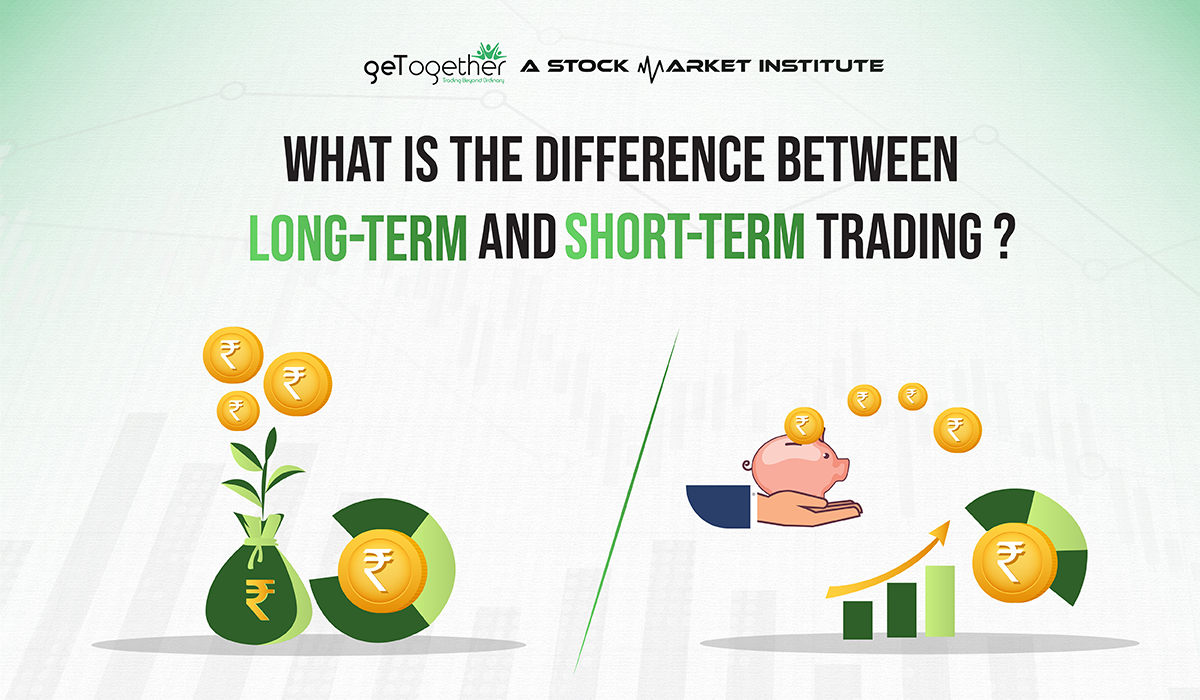Introduction
Embarking on an investment journey can be akin to navigating a labyrinth, with myriad paths promising varied outcomes. Two such paths that often beckon investors are long-term forex (foreign exchange market) and long-term stock investments. Each harbors its own advantages and caveats, making it imperative to weigh them carefully before taking a plunge. Delve into this article to unravel the intricacies of long-term forex versus long-term stock investments, arming yourself with the knowledge to make informed decisions that align with your financial aspirations.

Image: www.youtube.com
Long-Term Forex
The vast and alluring foreign exchange market (forex) offers round-the-clock trading of currency pairs, captivating investors seeking short-term profits. However, adopting a long-term perspective introduces a different dynamic. Holding currency pairs for extended periods can mitigate short-term fluctuations, potentially yielding substantial returns.
Advantages of Long-Term Forex:
-
Ample Liquidity and Leverage: Forex stands as the most liquid market globally, providing unparalleled opportunities to enter or exit positions with ease. Additionally, the provision of leverage amplifies returns, amplifying profit potential.
-
Diversity and Accessibility: Forex encompasses a plethora of currency pairs, allowing investors to diversify their portfolios and minimize risk. The decentralized nature of forex facilitates trading regardless of time zone or geographical location.
Considerations in Long-Term Forex:
-
Heightened Volatility: Forex markets experience inherent volatility, influenced by a multitude of factors. Long-term investors should possess a temperament that withstands market fluctuations without succumbing to emotional decisions.
-
Political and Economic Factors: Currency values are susceptible to political and economic events, both domestic and international. Long-term forex investors must stay attuned to geopolitical dynamics to make informed trading choices.

Image: www.gettogetherfinance.com
Long-Term Stocks
Investing in stocks of well-established companies offers a potentially lucrative path towards financial freedom. By owning a fraction of a company, long-term stock investors participate in its potential growth over time, generating returns through dividends and capital appreciation.
Advantages of Long-Term Stocks:
-
Potential for High Returns: Stocks have historically outpaced other investment vehicles over extended time frames, providing robust returns for patient investors who weather short-term volatility.
-
Dividend Income: Many companies issue dividends to their shareholders, offering a steady stream of income and mitigating the impact of market downturns.
Considerations in Long-Term Stocks:
-
Market Risk: Stock prices fluctuate in response to market conditions, sometimes experiencing significant declines. Long-term stock investors must exhibit resilience during market corrections, holding their ground until the market rebounds.
-
Company-Specific Factors: The financial health and industry outlook of a company directly impact its stock price. Investors must conduct thorough research and monitor company performance to make sound investment decisions.
Comparing Long-Term Forex vs. Long-Term Stocks
To discern which path aligns with your financial objectives, consider these key differentiators between long-term forex and long-term stocks:
-
Liquidity: Forex takes precedence in terms of liquidity, offering unmatched ease in entering and exiting positions compared to stocks.
-
Volatility: Forex markets exhibit greater volatility than stock markets, making them less suitable for risk-averse investors.
-
Returns: Both forex and stock markets offer potential for substantial returns, although stocks have historically yielded higher returns over the long term.
-
Capital Required: Forex trading often requires a relatively smaller capital outlay compared to stock investments, enhancing accessibility for beginner investors.
Which Path Should You Choose?
The optimal choice hinges upon your individual risk tolerance, investment horizon, and financial objectives. If you yearn for high returns, embrace volatility, and possess a long-term perspective, forex trading may beckon you. In contrast, if stability, dividend income, and potential capital appreciation are your priorities, long-term stock investments offer an established path to financial freedom.
Expert Insights and Actionable Tips
To navigate the nuances of long-term forex or stock investments, heed these insights from seasoned experts:
-
“Adopt a Disciplined Approach”: Exercise prudence by setting clear investment rules, sticking to your trading plan, and avoiding emotional decision-making.
-
“Diversify Your Portfolio”: Mitigate risk by investing in a mix of assets, including both forex currency pairs and stocks, to minimize losses during market downturns.
-
“Stay Informed”: Stay abreast of economic and political developments that can influence markets, making timely adjustments to your investment strategy as needed.
Long Term Forex Vs Long Term Stock
Conclusion
Long-term forex and long-term stock investments offer distinct paths towards financial empowerment, each with its own advantages and risks. By carefully considering your personal circumstances and investment objectives, you can make an informed decision that aligns with your financial aspirations. Remember, the path to financial freedom is not a straight line, but a journey marked by curves, obstacles, and triumphs. Embrace the learning experience, seek knowledge, and adjust your course along the way. With patience, perseverance, and commitment, you can potentially unlock the financial freedom you desire.






